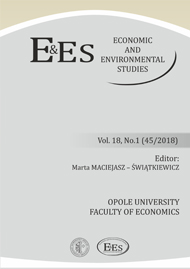Travelling preferences of the elderly and their perception of transport services in Lokoja, Kogi State, Nigeria
Travelling preferences of the elderly and their perception of transport services in Lokoja, Kogi State, Nigeria
Author(s): Musilimu AdetunjiContributor(s): Marta Maciejasz-Świątkiewicz (Editor)
Subject(s): Economy, Energy and Environmental Studies
Published by: Uniwersytet Opolski
Keywords: elderly people; transport; urba; perception and planning
Summary/Abstract: This study assessed the travel characteristics of the elderly population in Lokoja metropolis in North Central Nigeria. This was with a view to developing a database for proper formulation and implementation of a sustainable transport policy for elderly people in Lokoja metropolis in particular and in Nigeria in general. The introductory part of the paper considers the population of the elderly in different parts of the world, but with an emphasis on Lokoja metropolis of North Central Nigeria. A review of related literature, which forms another section of the work, reveals the age population and travelling preferences and pattern of elderly people in different parts of the world. Both primary and secondary data were elicited for this research. The primary data on the travelling preferences of the elderly were obtained from the three residential areas identified in the city. Materials for the study are of three types: socioeconomics characteristics of the elderly, the purposes for which they embarked on trips, and the mode of transportation and the distance they cover per day. A systematic random sampling procedure was used to select the elderly population in Lokoja. This was based on the principle of one in every tenth building along the major roads in each of the residential areas. A total of 200 elderly people were selected for the questionnaire survey, of whom 197 completed their questionnaires, which were subsequently analysed. The analysis was based on tables and other empirical statistical evidence.
Journal: Economic and Environmental Studies
- Issue Year: 18/2018
- Issue No: 1 (45)
- Page Range: 9-29
- Page Count: 21
- Language: English

